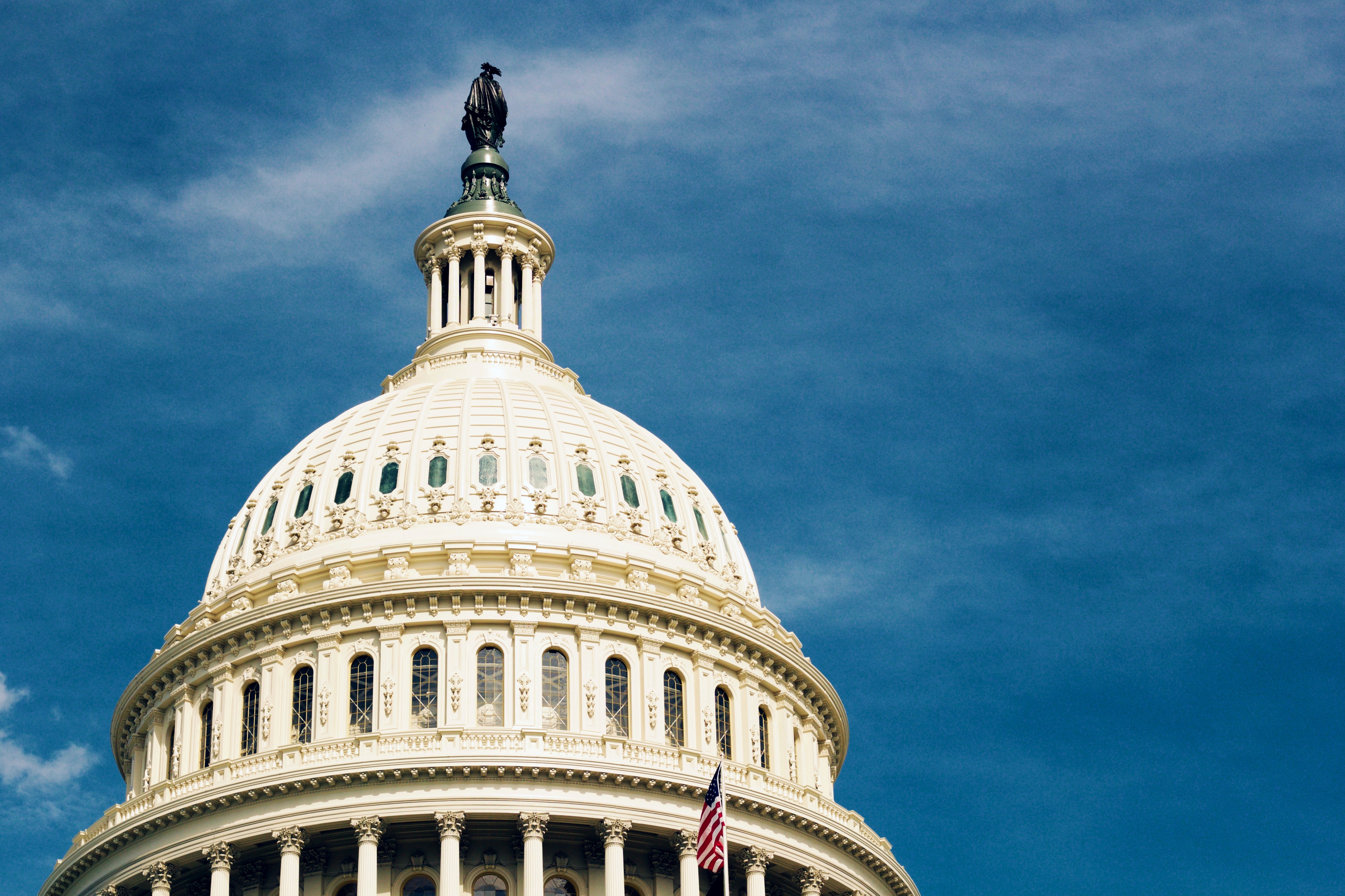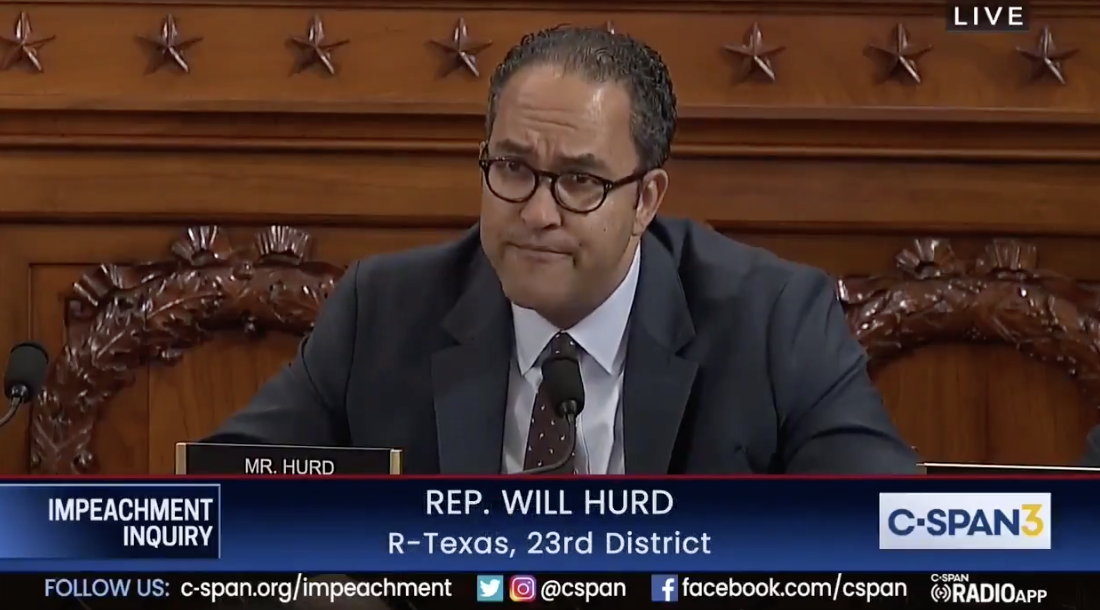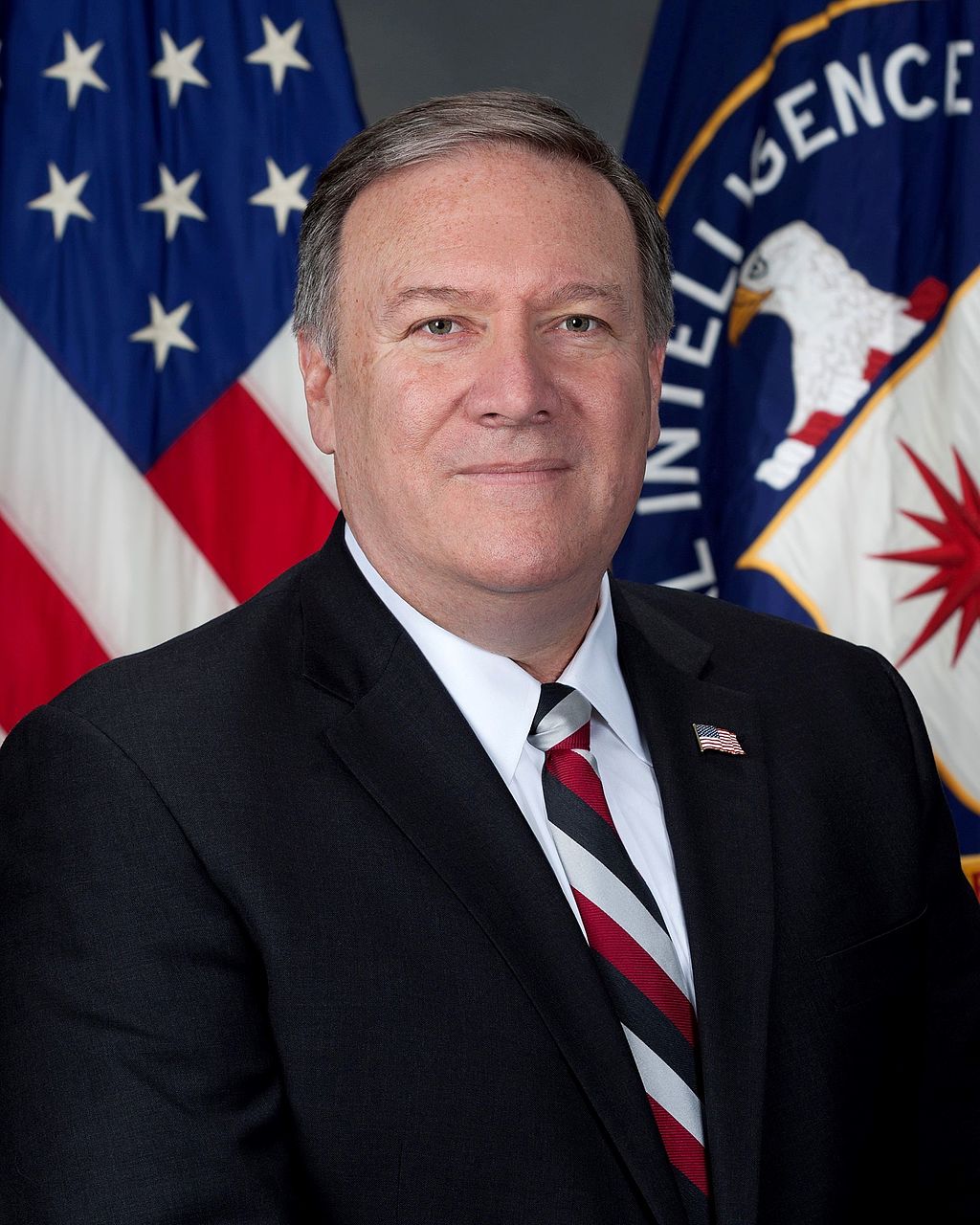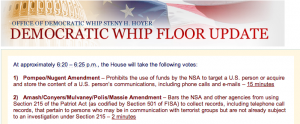Impeaching Donald John Trump — Again [UPDATE-3]
[NB: Check the byline. Updates will be posted at the bottom. /~Rayne]
The House is now voting on H.R. 24 to impeach Trump for high crimes and misdemeanors.
At 4:24 p.m. ET the vote stands at 228 Yea, 194 Nay, with 11 Not Voting or as-yet uncast votes.
There was a report that no GOP House member from North Carolina was present, which may boost the NV number higher than expected.
~ ~ ~
UPDATE-1 — 4:36 PM ET —
House members are being asked if they have voted and if any of them wants to vote. There’s no change.
H.R. 24 passes, 231 Yeas (including 10 GOP votes) to 197 Nays with 5 Not Voting.
Donald John Trump has been impeached a second time during his term, this time for High Crimes and Misdemeanors.
~ ~ ~
UPDATE-2 — 4:50 PM ET —
In comments below I said I’d like to know how many phone calls there were from the White House to GOP reps over the last 24 hours.
Rep. Jason Crow told MSNBC, “I had a lot of conversations with my Republican colleagues. … A couple of them broke down in tears … saying that they are afraid for their lives if they vote for this impeachment.”
Sure sounds like the White House may have extorted Nays from GOP representatives considering the level of fear Crow shared.
In other words, even as the House was preparing to vote to impeach Trump for High Crimes and Misdemeanors, he may well have been committing more crimes.
House whip Steny Hoyer committed to sending H.R. 24 immediately to the Senate for action. What happens next is on Senate Majority Leader Mitch McConnell, who has been making noises which sound supportive of conviction — but this is McConnell, who has so far done nothing during the last four years to the benefit of the country and in defense of the Constitution, sucking up instead to Trump or the corporate donor class.
Who will McConnell suck up to with this resolution? Will he ignore the clear and present danger Trump poses to national security every moment he remains in power between now and noon ET on January 20?
~ ~ ~
UPDATE-3 — 2:25 AM ET 14-JAN-2021 —
The final vote count was 232-197, with the following GOP representatives voting for impeachment:
Adam Kinzinger (IL)
Liz Cheney (WY)
John Katko (NY)
Fred Upton (MI)
Jaime Herrera Beutler (WA)
Dan Newhouse (WA)
Peter Meijer (MI)
Anthony Gonzalez (OH)
Tom Rice (SC)
David Valadao (CA)
Nice that two were from my state, Michigan, and one of the two a freshman; still, Michigan had five Trump-y GOP representatives who voted No.
These members did not vote:
Kay Granger (TX)
Andy Harris (MD)
Greg Murphy (NC)
Daniel Webster (FL)
All four are GOP representatives.
This past weekend Senate Majority Leader toyed around with GOP donors — or perhaps with Trump — indicating he had left Team Trump’s camp.
McConnell spoke to major Republican donors last weekend to assess their thinking about Trump and was told that they believed Trump had clearly crossed a line, the strategist said. McConnell told them he was finished with Trump, according to the consultant.
After the impeachment vote McConnell issued this statement saying the earliest he can start a trial is next week.
My full statement on the next seven days and the Senate schedule: pic.twitter.com/Nh5z3f79yq
— Leader McConnell (@senatemajldr) January 13, 2021
It’s not like there’s a clear and present danger to national security in the White House which has encouraged the assassination of the Vice President and members of Congress including the next couple of people in the line of presidential succession.
I wonder what McConnell received in exchange for refusing to move to an emergency session to take up the trial.
I’d also like to know what the big GOP donors think of McConnell’s foot dragging. The number of corporate PACs which have said they won’t donate to seditionist members of Congress has grown and includes Fortune 100 companies; how do they feel about McConnell leaving national security hanging as it is for another week?
House Speaker Pelosi named the impeachment managers Tuesday; the nine House members are a good lineup of attorneys including litigators, public defenders, and prosecutors:
Jamie Raskin (MD), lead
Diana DeGette (CO)
David Cicilline (RI)
Joaquin Castro (TX)
Eric Swalwell (CA)
Ted Lieu (CA)
Stacey Plaskett (VI)
Joe Neguse (CO)
Madeleine Dean (PA)
Let’s hope they make a tight and impactful case for conviction though Trump did a pretty good job all by himself, caught entirely on camera a little after noon on January 6, exhorting the rioters to show strength and march on the Capitol Building.
It’s a pity the seditionist caucus can’t be tried at the same time. Every member of Congress who aided and abetted this insurrection should be expelled; their districts and states deserve better representation from people who take their oath of office seriously, including protecting the Constitution from all enemies foreign and domestic.




![[Photo: National Security Agency, Ft. Meade, MD via Wikimedia]](https://www.emptywheel.net/wp-content/uploads/2017/08/NationalSecurityAgency_HQ-FortMeadeMD_Wikimedia.jpg)

